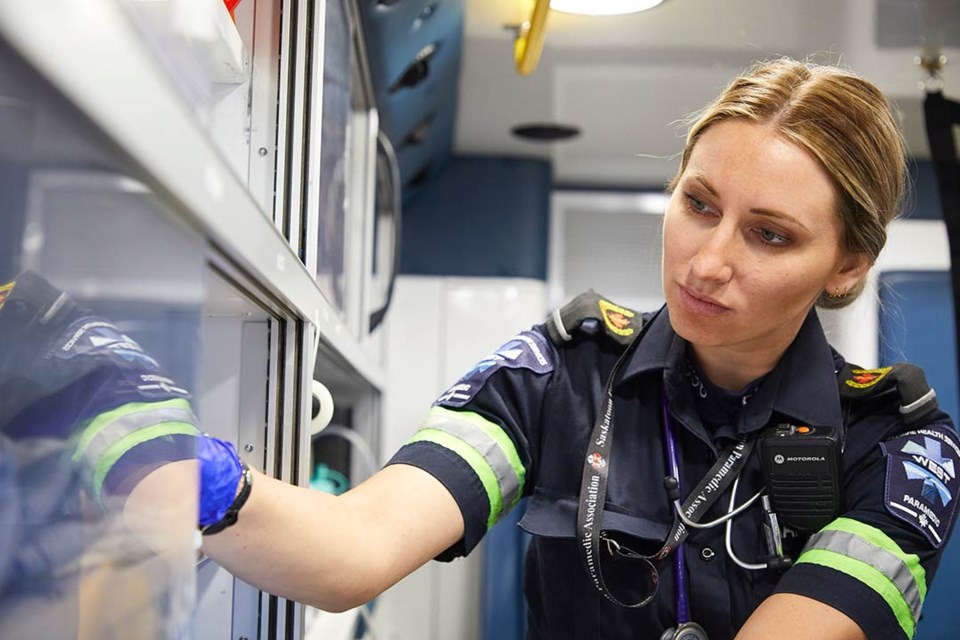SASKATOON - Holly Poirier grew up in Kipling. Her parents still live there and the town will always hold a special place in her heart.
She eventually moved to Regina and trained to become a paramedic. Poirier worked her first couple years in Yorkton after training. She has been practising paramedicine for 10 years with Medavie Health Services West in Saskatoon.
In 2017, Poirier was asked to join the filming of the documentary Paramedics: Emergency Response, a CityTV production in association with Rogers Media.
Initially the show’s director and producer Tony Hrynchuk sat beside a paramedic during a flight from Edmonton to Saskatoon. The two strangers chatted and shared life and career stories. Hrynchuk commented that he would really like to develop a series filming actual paramedic shifts.
Fast forward to 2017 and the series aired for the first time. The documentary followed Saskatoon paramedics to enormous success and accolades and it continues to have a huge following, with episodes available online.
Poirier had not applied for the casting call, but when asked, eventually agreed to participate. The episodes followed select teams of paramedics that responded to some 30,000 emergency calls each year. The calls ranged from false alarms to critical situations of life and death.
Unfortunately, false alarms take up valuable time and call availability for paramedics required in serious situations. Filming added another level of stress to the calls with crews interrupting procedure and patient care at times. Poirier found her groove despite the cameras, lighting and other crew members.
The paramedics are so busy with each 12-hour shift. There is no time to eat, have a break or use a washroom. Hospitals' emergency rooms are so busy that the paramedics are often left with the care of the transported patient for hours in back hallways. Once they are assessed by hospital staff and a decision is made to release the patient or find a room to keep them, the paramedics are finally able to return to their calls that often stack up in the teens.
The amount of stress for paramedics is always increasing. Poirier acknowledged that she lives with PTSD due to the trauma and inhumanity she witnesses on every shift. She is not alone. Canadian experts put first responders in Canada subject to mental health issues at a much higher rate than the average population.
“It’s so dangerous now that at the end of the day, all I want is to go home to my family," Poirier said. “I’ve been kicked, punched, spit on, bit, wrestled and fought with grown men and have been threatened verbally and physically.
“I am not your enemy. You are the one that called me. Sense of community is fading, conditions are disgusting and deplorable. It’s a crazy, hard world. There’s no respect anymore. It’s all so incredibly sad.”
Poirier takes incredible care of herself and proactively treats her PTSD and other stress with massage, red light therapy and counselling. She also maintains her physical health. Notwithstanding everything that she has been through, Poirier loves 小蓝视频 a paramedic.
Many call for paramedics because they have no one else and no place to go. Poirier gives mittens to patients to keep them warm as they navigate the streets and shelters.
"I’ve hugged millions of strangers over my career so far," she said. "It’s all that I know and all that I’ve done.”




